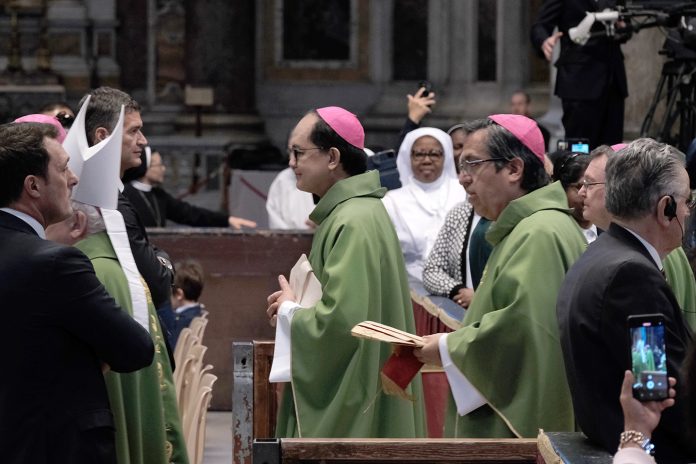The head of the Catholic Bishops’ Conference of the Philippines (CBCP) is offering the local church’s “national synodal council” as a template for Pope Francis’ bid to widen participation and make the global Church more inclusive.
Bishop Pablo Virgilio David of Kalookan, CBCP president, said the synodal council was formed to discuss an Asia-wide report based on consultations at the parish, vicariate, diocesan, metropolitan, and national levels beginning October 2021.
“I think we were sort of in a consensus that we want the other sectors of the Church to also participate in leadership and we set a trend towards that direction already in the Philippine church,” David told CBCP News.
“We have to hear the voices that are not heard within the Church,” he added.
David said a synodal council would be an exercise of “co-responsibility in mission,” one of the priorities of the “Synod on Synodality” convoked by Pope Francis two years ago to chart pathways to make the Church more participative and listening.
The CBCP will just be one of the members of the council, which should also include people of different beliefs and not just representatives of lay organizations, David said.
The Association of Major Religious Superiors in the Philippines (AMRSP) has been converted into the Conference of Major Superiors in the Philippines (CMSP), he noted.
“In the Philippines when people ask, ‘What is the stand of the church?’ they’re always asking for the stand of CBCP, but CBCP is the bishops. The church is not just made up of CBCP, the church in the Philippines is so huge, so wide,” David said.
The synthesis report released on Oct. 28 at the conclusion of the 2023 Synod, formally called the 16th Ordinary General Assembly of the Synod of Bishops, called on bishops to be “an example of synodality” by exercising “co-responsibility.”
The term co-responsibility pertains to the involvement of other actors within the diocese and the clergy to lighten the workload of bishops, according to a Vatican summary.
Cardinal Mario Grech of Malta, secretary general of the Synod of Bishops, told reporters on Saturday, Oct. 28, that adopting synodality in the local churches would require a “learning curve.”
Sought for comment, Prof. Clarence Batan of the University of Santo Tomas, principal researcher of a Church-commissioned national study on catechists, said Pope Francis’ objective in seeking synodality in the Church goes beyond stakeholder relations practiced by secular organizations.
“The participative aspect of synodality is deeper than stakeholder’s relations because everyone is involved in the process,” said Batan, a sociologist.
“The synodal process really breaks the hierarchy,” he said.









